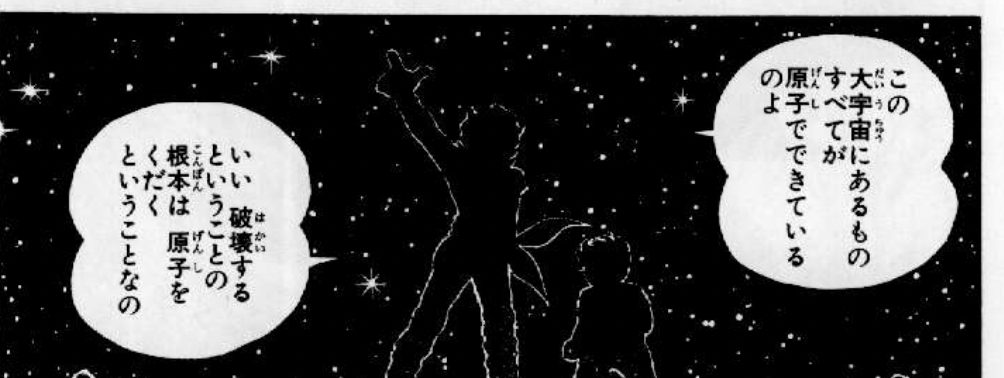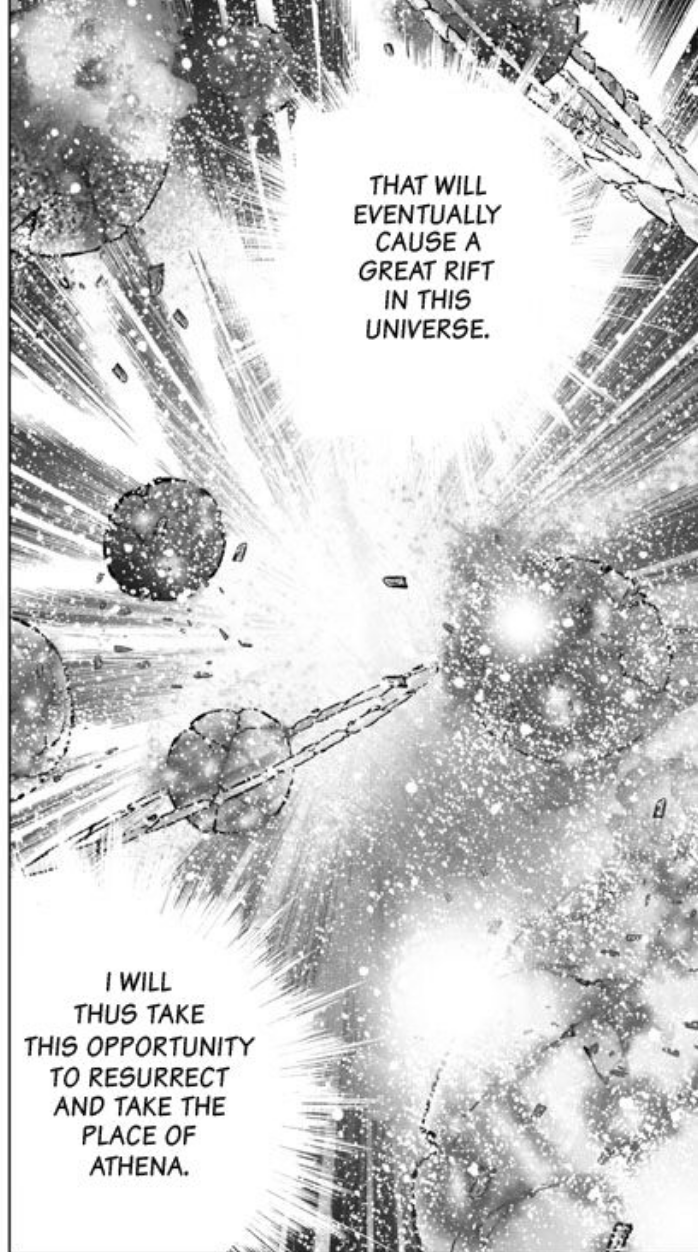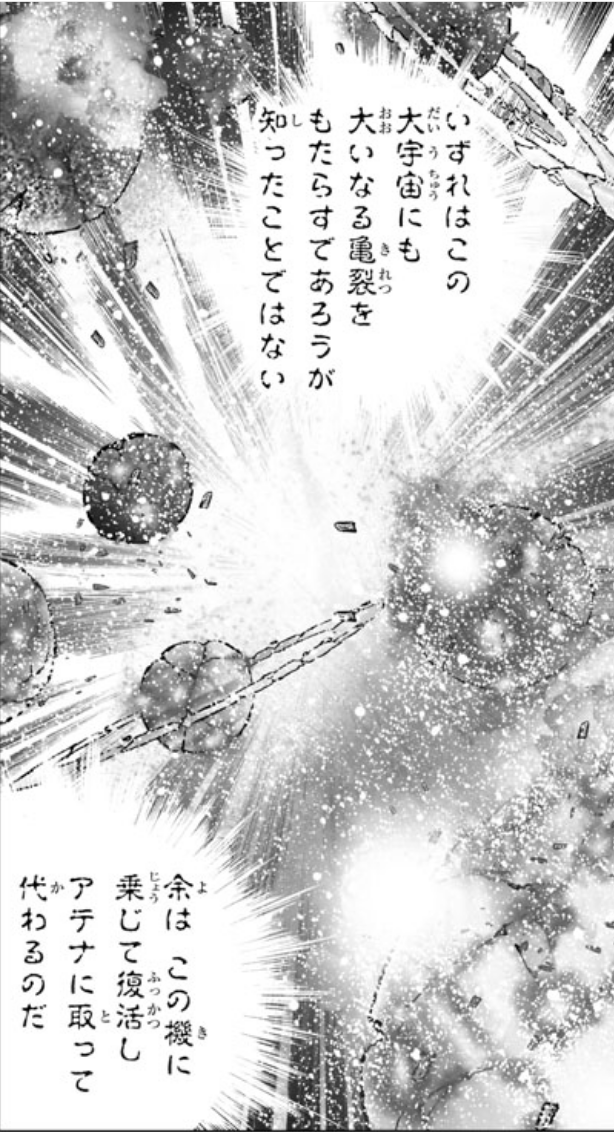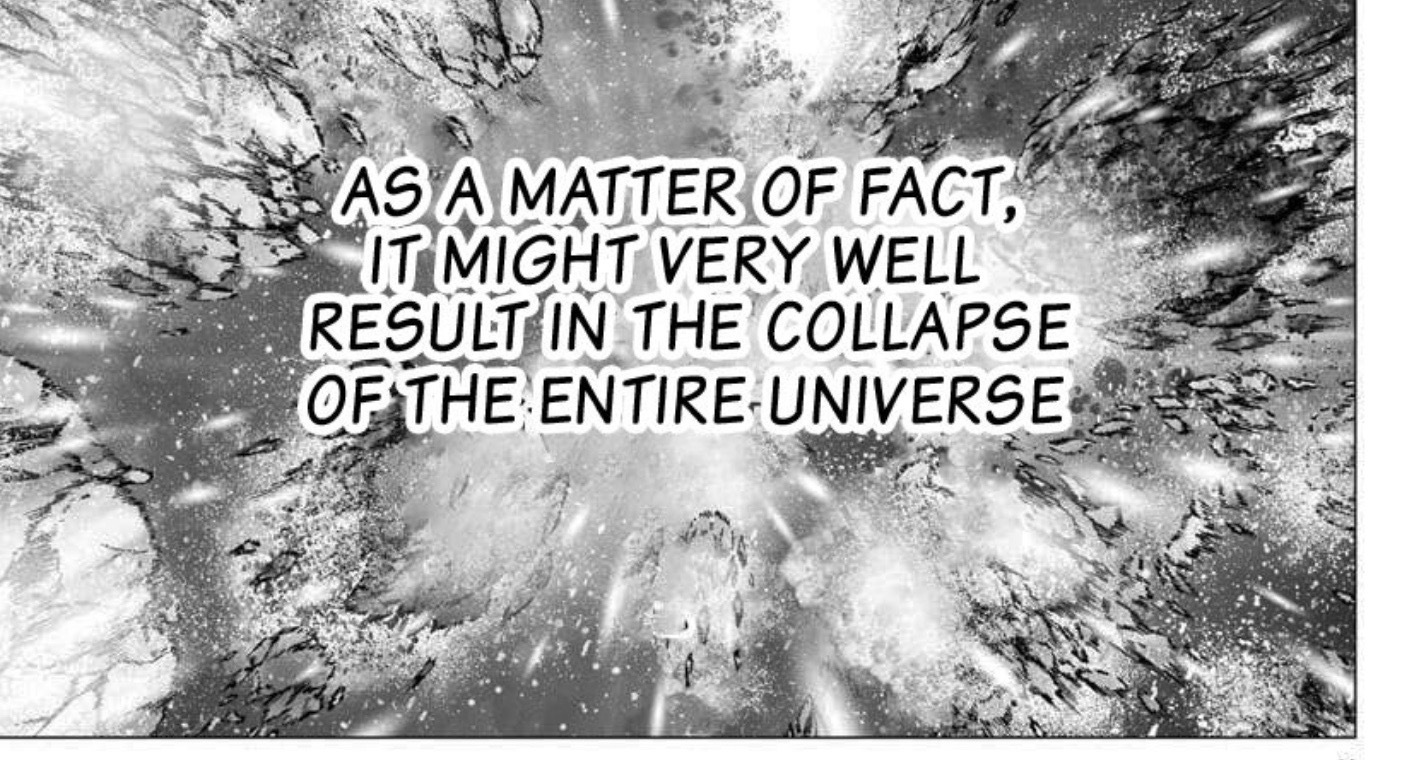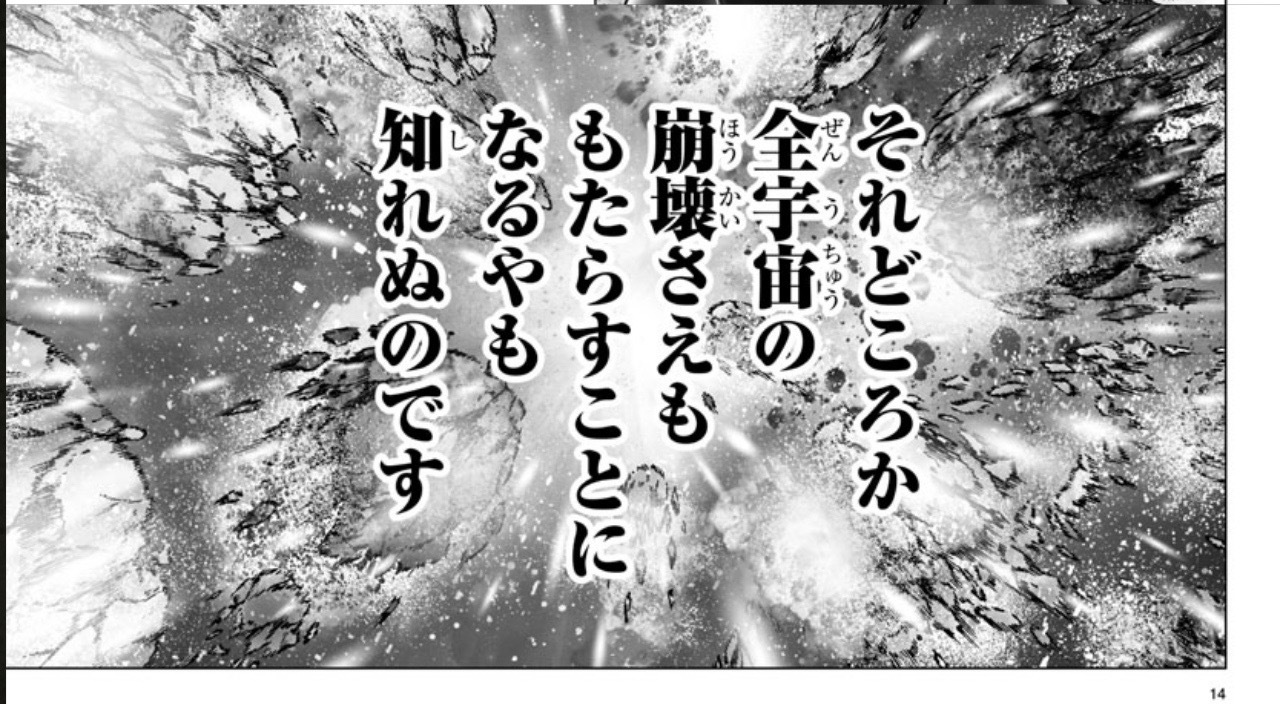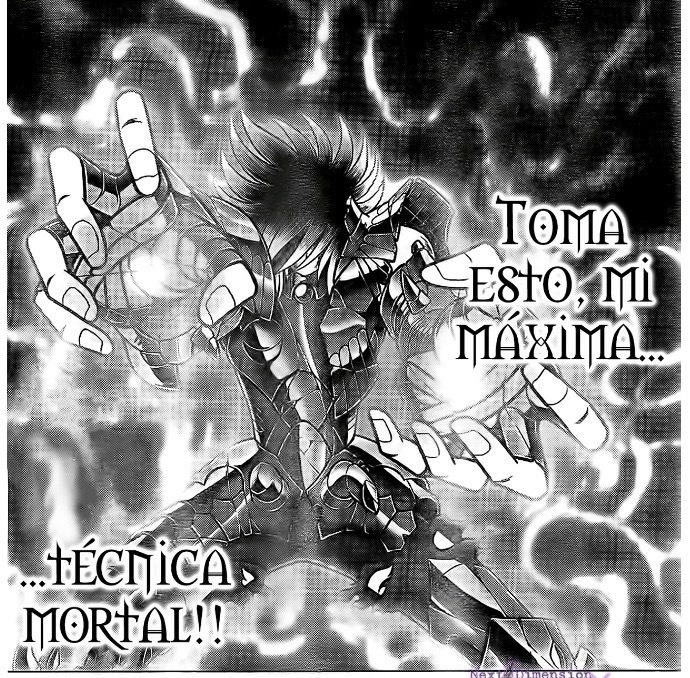A topic I've been wondering about, since there seems to be some room for different interpretations based on what certain translators choose to put, or what the context may describe.
Does the lake that forms Chronos (Next Dimension) really contain the nebula of the multiverse as the wiki currently describes, or just the universe?
As we know, various translators have translated the description of the Nebulas of Chronos' body as either the "macrocosmo" or "universe" (I see the updated translations and more of them indicate the latter though).
An English/Spanish reading of "macrocosmo" on it's own could be taken to describe something greater than just their universe, or it could also just be a fancy way of describing the universe too.
In the original, it seems that Hecate says 大宇宙, which literally just means "Great Universe." This simply sounds like to just the universe.
This phrase was used in the introduction of the story and its cosmology too, when Marin explained that everything in this 大宇宙 "Great Universe" is made of atoms. A contextual usage like this seems to make it pretty straightforward that it just refers to the universe.
There was also a part where Chronos mentioned that his various nebula also could lead to a different past or future that could mean it has different universes/timelines, but that sounds like it could just mean a different era of the universe's history, and if Athena even used one of those Nebulas to just go to a past era of the universe.
Although even the best translator for Next Dimension recently said that the Nebula in Chronos body explicitly weren't made as a reference to parallel universes and simply the past/future, so it probably didn't refer to that.
Does anyone else remember any other citations of a phrase like 大宇宙 in Kurumada's work to confirm if it means just the universe like the scene with Marin and some context in the scene with Chronos and Athena indicates, or it really means the multiverse, because otherwise it seems to be the information on Chronos' page on this wiki might be a complete mistake.

